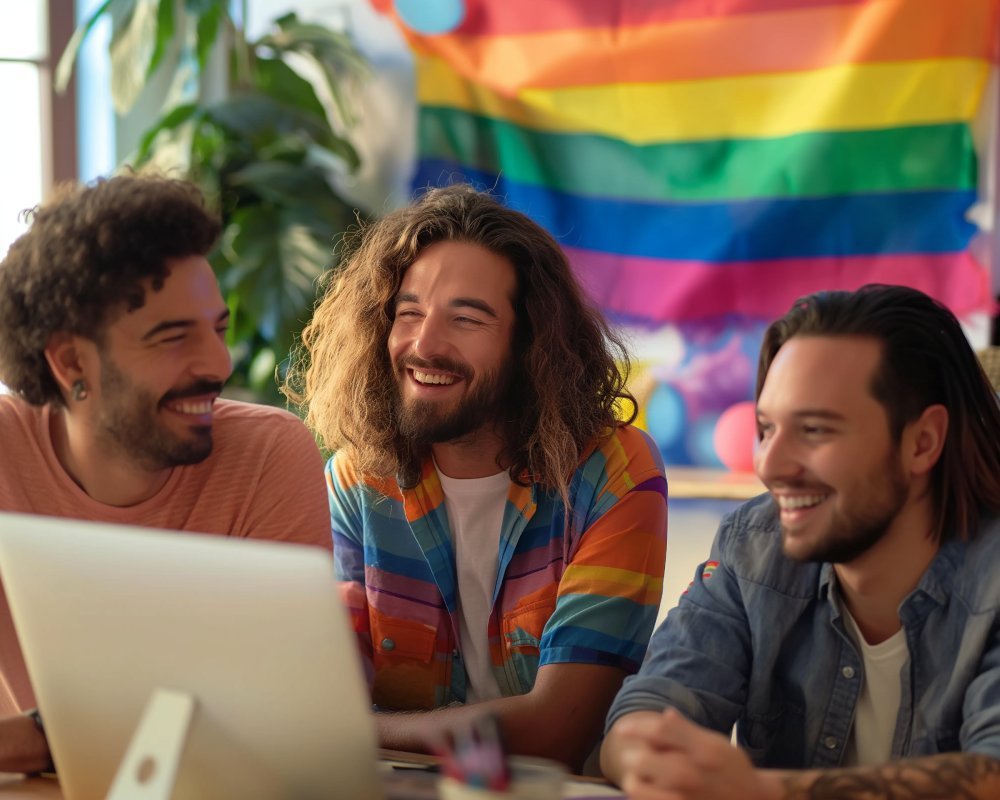
Why Are Gay Stereotypes Harmful? – Stereotypes have always been a prevalent issue in society, and the LGBTQ+ community is no exception. The harmful effects of gay stereotypes can be seen in various aspects of life, from relationships to career opportunities. Stereotypes are oversimplified ideas or beliefs about a particular group of people, often based on prejudice or misconceptions. When it comes to the LGBTQ+ community, stereotypes can be particularly damaging, as they can perpetuate harmful ideas and lead to discrimination and marginalization.
One of the main reasons why gay stereotypes are harmful is because they can limit an individual’s sense of self-expression and authenticity. When someone is constantly boxed into a narrow, predetermined idea of what it means to be gay, they may feel pressured to conform to that stereotype, even if it doesn’t align with their true identity. This can lead to feelings of shame, self-doubt, and internalized homophobia. Additionally, gay stereotypes can create unrealistic expectations about how LGBTQ+ individuals should behave, dress, or present themselves, which can further contribute to feelings of alienation and isolation.
Furthermore, gay stereotypes can also have a negative impact on relationships within the LGBTQ+ community. When people are pigeonholed into specific roles or categories based on their sexual orientation, it can create divisions and barriers between individuals. For example, the stereotype of the “flamboyant gay man” or the “butch lesbian” can cause people to make assumptions about others’ personalities, interests, or capabilities, without taking the time to get to know them as individuals. This can lead to misunderstandings, conflicts, and ultimately, prevent genuine connections from forming.
In addition to personal relationships, gay stereotypes can affect LGBTQ+ individuals in the workplace as well. When someone is perceived through the lens of a stereotype, they may be unfairly judged or discriminated against in professional settings. For example, the stereotype of the “effeminate gay man” as being weak or unassertive could lead to missed opportunities for leadership positions or promotions. Similarly, the stereotype of the “promiscuous bisexual” could lead to assumptions about someone’s professionalism or commitment to their work. These biases can create a hostile work environment and hinder LGBTQ+ individuals from reaching their full potential.
It’s important to recognize that gay stereotypes are not only harmful to individuals within the LGBTQ+ community, but they also have broader implications for society as a whole. When stereotypes are perpetuated and reinforced, it can lead to widespread discrimination, prejudice, and violence against LGBTQ+ individuals. By dehumanizing and objectifying people based on their sexual orientation, stereotypes can contribute to a culture of intolerance and bigotry, which can have devastating consequences for those who are targeted.
In order to combat the harmful effects of gay stereotypes, it’s essential for individuals to challenge their own biases and assumptions, and to educate themselves about the diverse experiences and identities within the LGBTQ+ community. By recognizing and celebrating the unique qualities and strengths of each individual, we can create a more inclusive and supportive environment for everyone. It’s also important for media, entertainment, and advertising industries to portray LGBTQ+ characters and narratives in a more nuanced and authentic way, to move beyond clichés and stereotypes.
Ultimately, it’s crucial for us as a society to work towards breaking down harmful stereotypes and promoting acceptance, understanding, and respect for all individuals, regardless of their sexual orientation or gender identity. By challenging prejudice and discrimination wherever we encounter it, we can create a more inclusive and equitable world for everyone. So, let’s ask ourselves, “Why Are Gay Stereotypes Harmful?” and commit to being part of the solution. Together, we can build a more just and compassionate society for all.
Advertisement · Scroll to continue
Recommended
- SEO Tips for Gay-Owned Businesses: Boosting Online Visibility
- From Inclusion to Representation: How Gay Marketing Agencies are Changing the Game
- Breaking down the Myths: How Target Marketing to the Gay Community is Shaping the Future of Advertising
- Breaking Barriers: How Gay-Owned Businesses are Making Waves in the Market

More Recommended
How to Find LGBTQ+ Support Groups for Gays
How to Find LGBTQ+ Support Groups for Gays – Finding LGBTQ+ support groups for gays [...]
Can you refuse DEI training?
Can you refuse DEI training? – Organizations today, including those that are LGBTQ+ friendly, are [...]
The Importance of Gay Teachers in Education
The Importance of Gay Teachers in Education – As we continue to strive for inclusivity [...]
The Power of Gay Voices in Literature
The Power of Gay Voices in Literature – Literature has always been a powerful medium [...]
How to create a safe environment for LGBTQ?
How to create a safe environment for LGBTQ? – Creating a safe environment for LGBTQ [...]
The Olivia Cruises Lawsuit
Title: The Olivia Cruises Lawsuit: Background, Settlement, and Its Impact on Lesbian Travel 1. Introduction [...]
Exploring Gay Literature and Its Impact on Society
Exploring Gay Literature and Its Impact on Society – Gay literature has played a significant [...]
Marketing Equality: How Lesbian-Owned Businesses are Changing the Game
Empowering the LGBTQ+ Community: The Impact of Lesbian-Owned Businesses in Marketing Equality In today’s society, [...]
Is Costco rolling back DEI?
Is Costco rolling back DEI? – Sure, here’s a draft for your blog:—The question on [...]